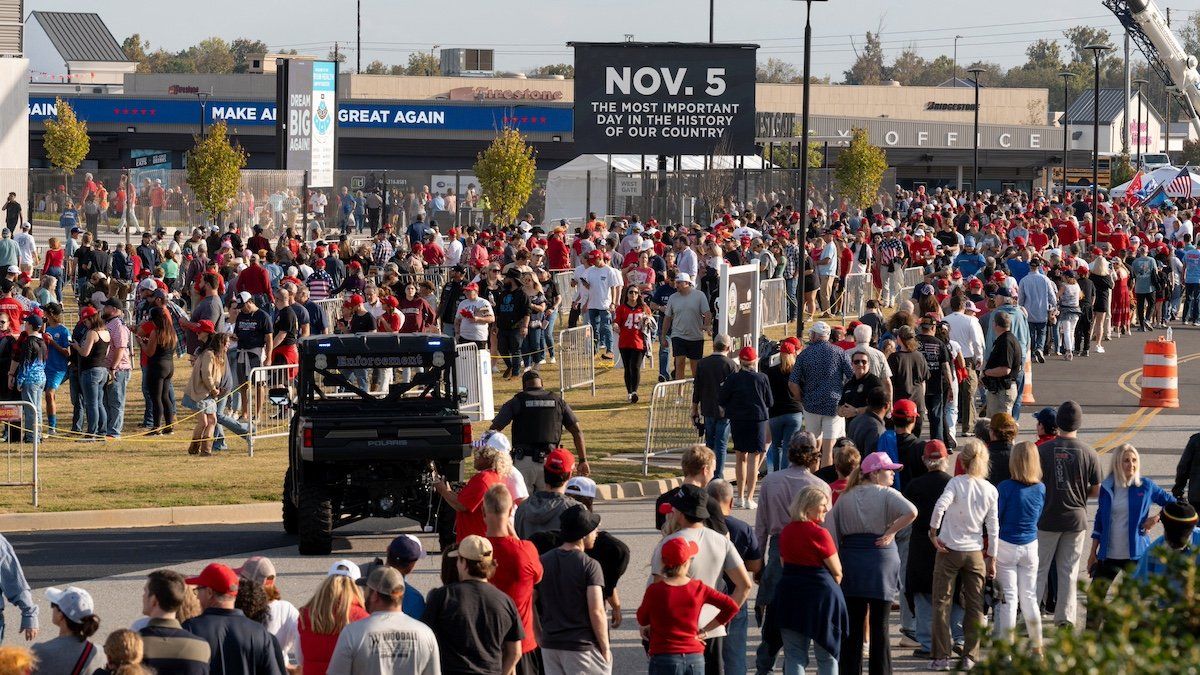Exclusive poll: Majority of Americans believe Trump can end conflict in the Middle East
Polls show that US voters are almost evenly divided over who to elect as the 47th president — but here at GZERO, we wanted to know what Americans think about the candidates when it comes to foreign policy. So we partnered with Echelon Insights to get some exclusive polling.
In our last poll, which surveyed 1,005 voters, we learned that the majority of Americans believe the Israel-Gaza war is the most pressing issue for the White House, followed by the Ukraine-Russia war, US-China relations, and climate change.
So for our latest poll with Echelon, we asked 1,328 voters which candidate they feel is more likely to end the conflict in the Middle East — and whether Kamala Harris or Donald Trump is more likely to bring the US into another war.
When asked whether Harris or Trump is more likely to end the conflict in the Middle East, 48% said “definitely Trump” or “probably Trump,” compared to 38% for Harris.
As we’ve covered in our Bloc by Bloc series, gender and the perception of gender roles are proving pivotal in the 2024 election — and we see this playing out in these results. Of those who felt Trump would make more progress, 53% were men, and 43% were women. Meanwhile, of the nearly 40% who felt Harris would make more headway in the region, it was women who had more faith in her ability, 42% to 35%.
When asked which candidate is more likely to bring the US into another war, however, the margins narrowed, with 45% saying Harris and 43% saying Trump.
